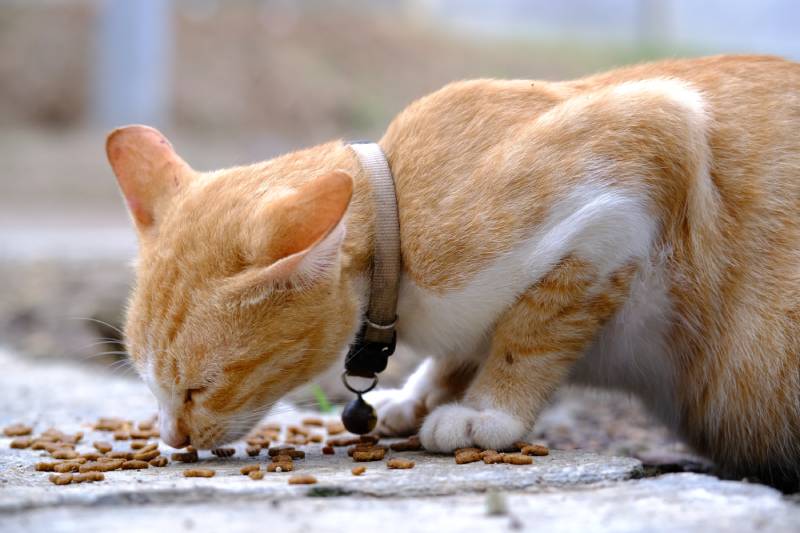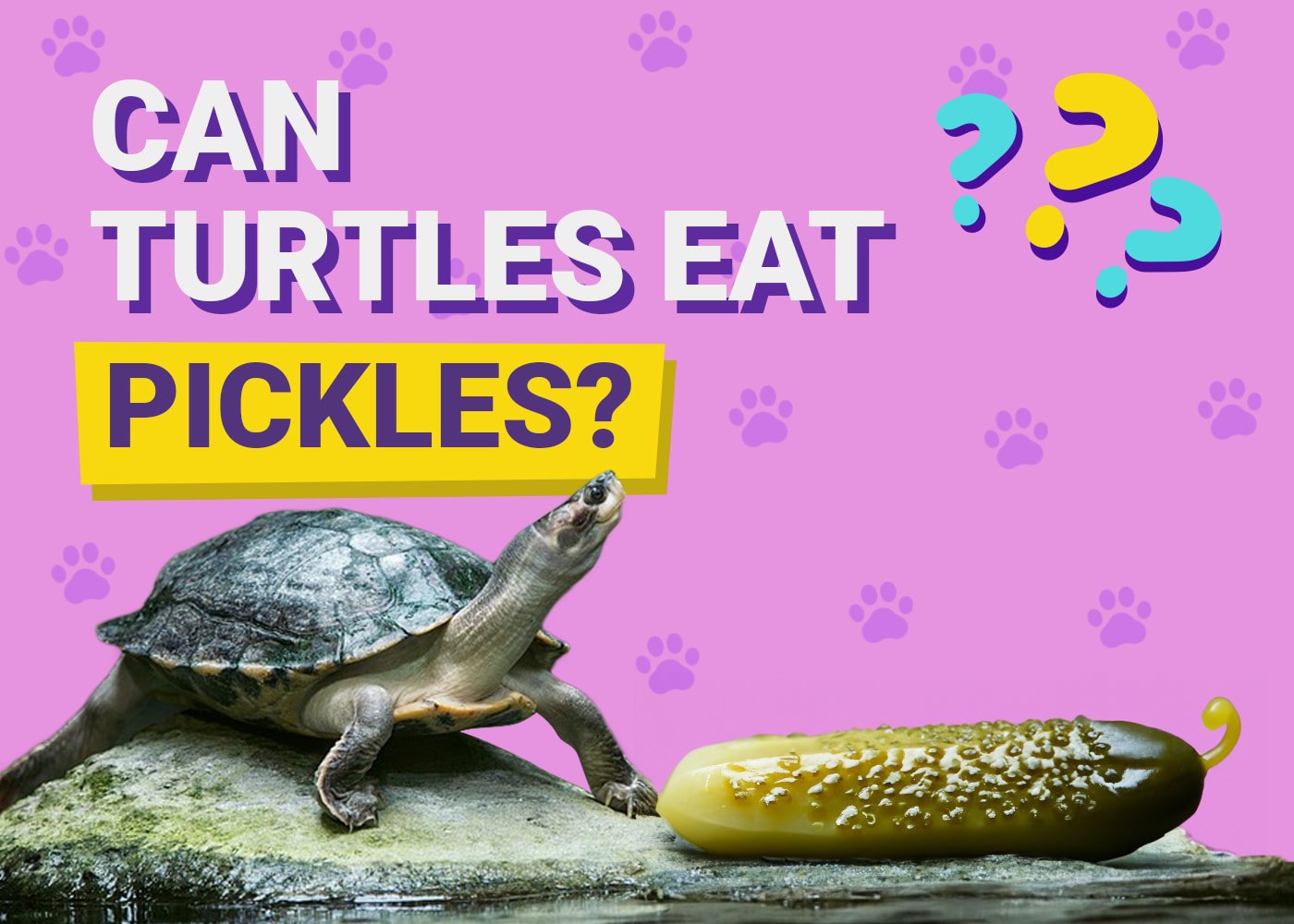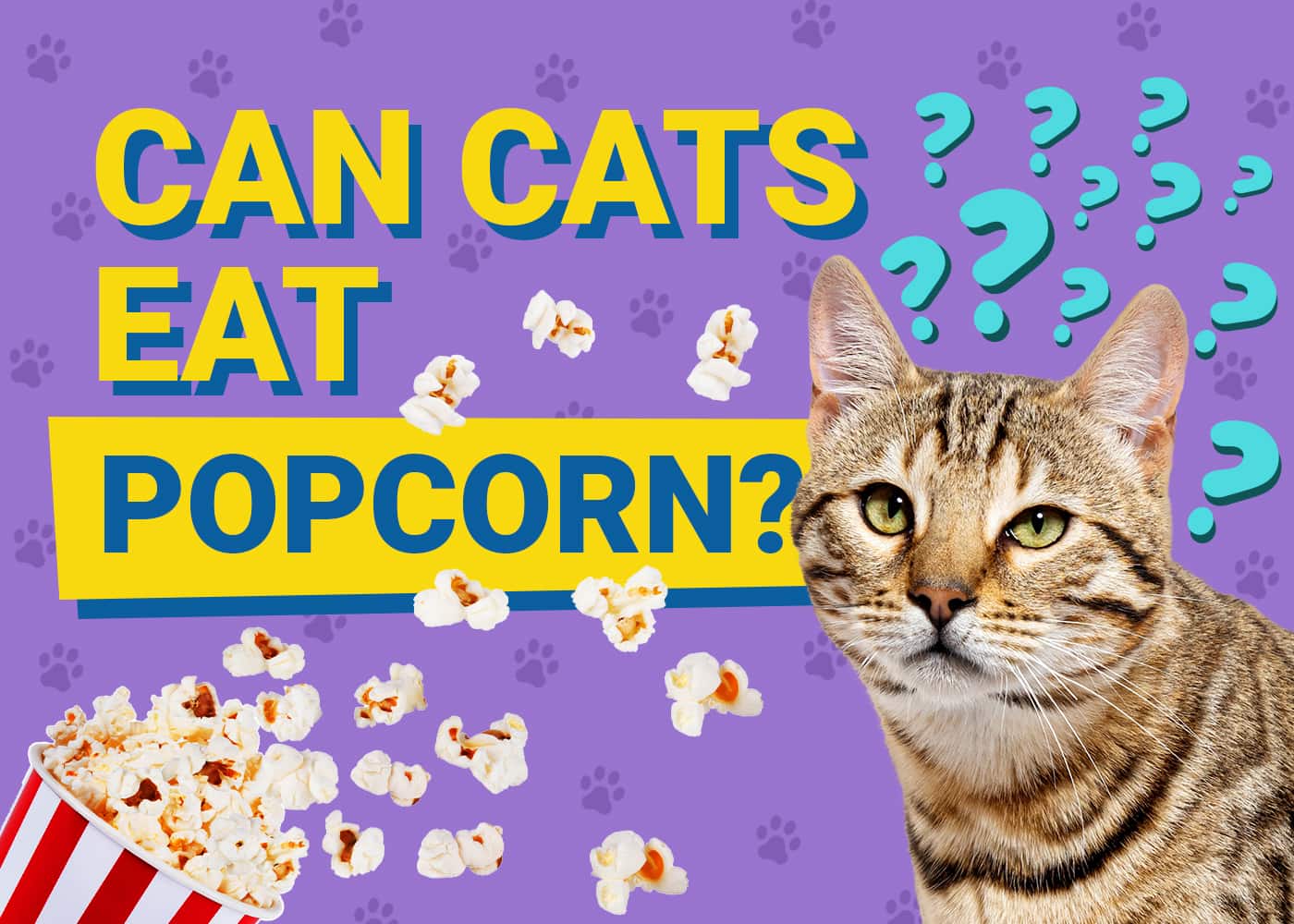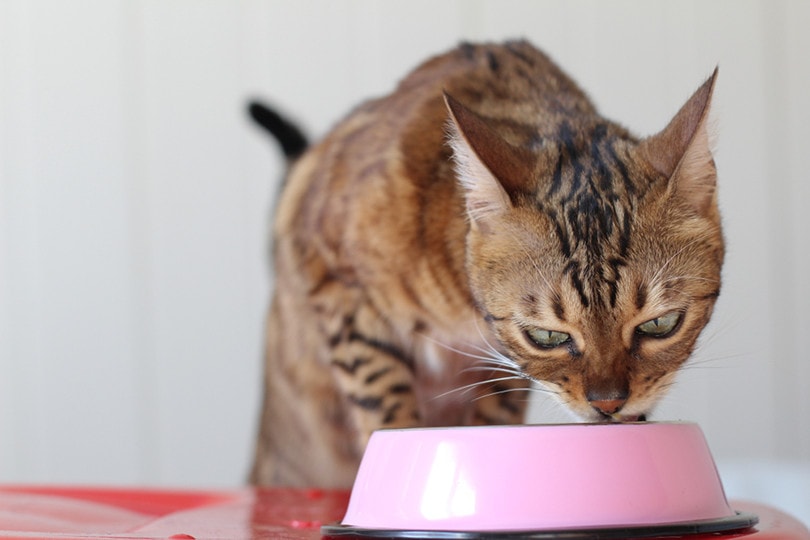VET APPROVED

The information is current and up-to-date in accordance with the latest veterinarian research.
Learn more »Click to Skip Ahead
Cats have no problem telling us what they want, especially at mealtimes. Every cat owner is familiar with the rubbing of the face on the legs or the constant meowing at the food dish. Some cats have always eaten very fast, others may change their eating habits at some point in their lives. In any case, the reason for this behavior should always be investigated and addressed as soon as possible.
If your cat is eating too fast, you’ll want to find ways to slow their eating down to prevent your cat from having complications associated with this behavior. If you’ve wondered why your cat eats so fast and need ways to help slow them down, we’re here to help. Let’s take a look at ways you can help your kitty to stop eating so fast.

Before You Start
If you notice piles of undigested food or vomit around your home, you might be wondering if your cat is regurgitating or vomiting their food because they are eating too fast. Regurgitating is different from vomiting; regurgitation involves an involuntary and passive mechanism where your cat expels undigested food content. Vomiting is an active process in which digested food is expelled from the stomach involving the abdominal muscles. If your cat regurgitates or vomits, take them to the vet for an examination.
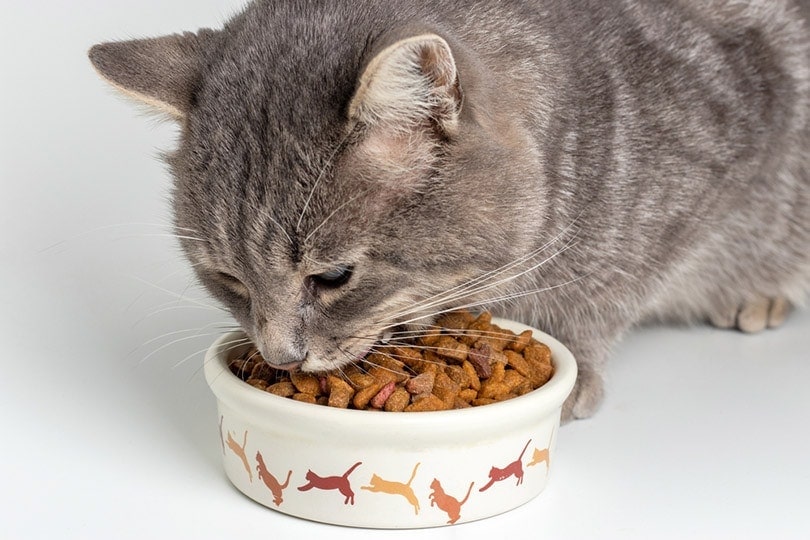
The 4 Methods to Slow Down a Cat Who Is Eating Too Fast
1. Try Unconventional Food Bowls
What we mean by unconventional food bowls are ones that challenge your cat mentally when eating. In other words, food is dispersed, but not in the “traditional” way. These bowls have tunnels or mazes that require your cat to solve puzzles in order to get the food, which will prevent them from gulping their food quickly.
These feeders are also excellent for portion control and will only disperse a certain amount of food at a time.
2. Use Automatic Feeders
Automatic feeders are an excellent way to develop a feeding schedule for your cat. These feeders dispense food at interval times of your choosing and will only dispense small amounts at a time. If your cat eats frequent smaller meals rather than one large meal, it likely will not be inclined to eat too fast. Ensure you purchase an automatic feeder with portion control to keep your kitty from becoming obese.
Most feeders are only suitable for dry kibble, but you can find some that are wet-food compatible, so ensure you purchase the correct one for your cat’s needs.
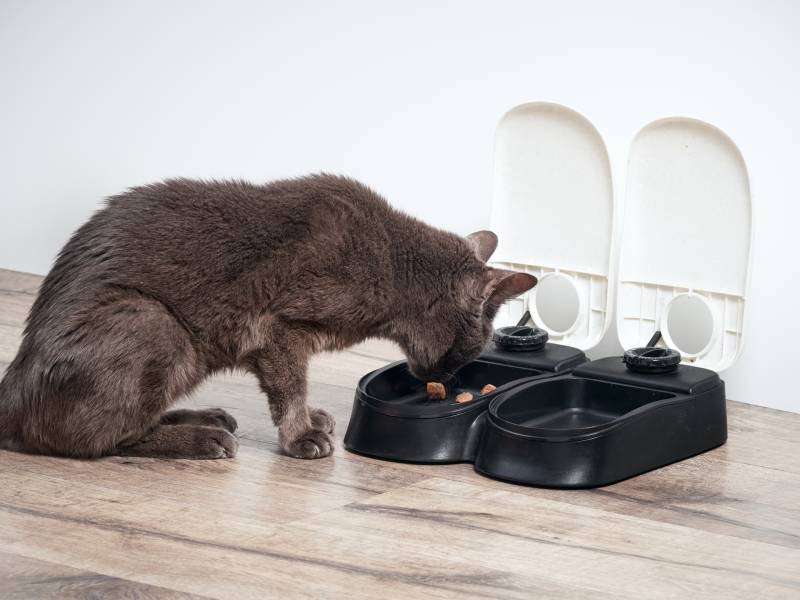
3. Offer Smaller Meals
If automatic feeders are not within your budget, you can offer smaller meals throughout the day. Offering smaller meals at a time may help slow your cat’s eating speed down and give them time to digest more comfortably.
4. Add an Obstacle
If your cat eats from a traditional cat bowl, adding an obstacle to the food bowl creates a diversion, if you will, while your cat is eating. For example, placing ping pong balls, golf balls, or even tennis balls in the bowl will make your cat maneuver around the obstacles, which will slow their eating down.
Your cat will have to push the obstacles around, which seems very effective in slowing their eating. It’s very important to note that whatever obstacle you use is big enough that your cat cannot pick it up in their mouth and swallow it.
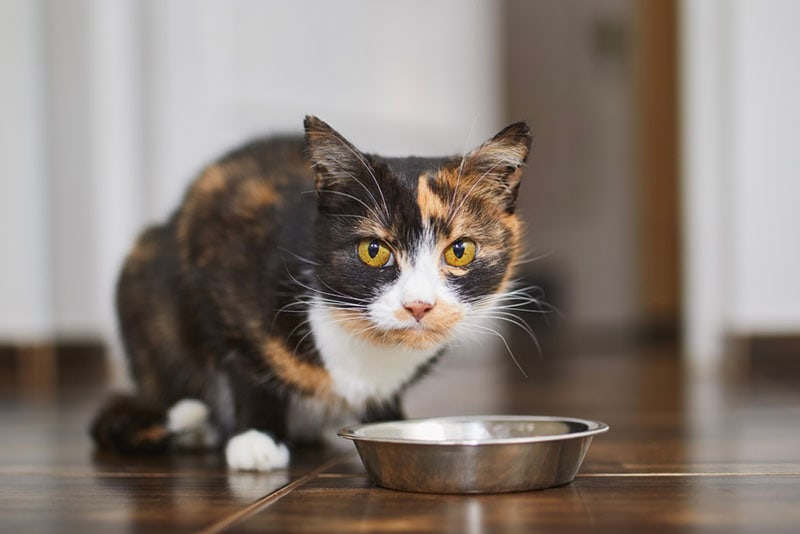

Why Is My Cat Eating Too Fast?
Now that we know how to slow your cat’s eating, let’s explore why your cat may be eating too fast in the first place. While some cats may simply be greedier than others, abnormal feeding behavior can also be a sign of an underlying medical or behavioral condition.
Territorial Issues
If your cat is dealing with other cats in the home and maybe even bullied, they may feel the need to eat fast before being run off by another cat. Some dominant cats may hoard food around other cats in the home, which makes the other cats gulp their food fast in order to eat; eating becomes a competition in a sense.
If this scenario sounds familiar, try feeding your cats in separate rooms.
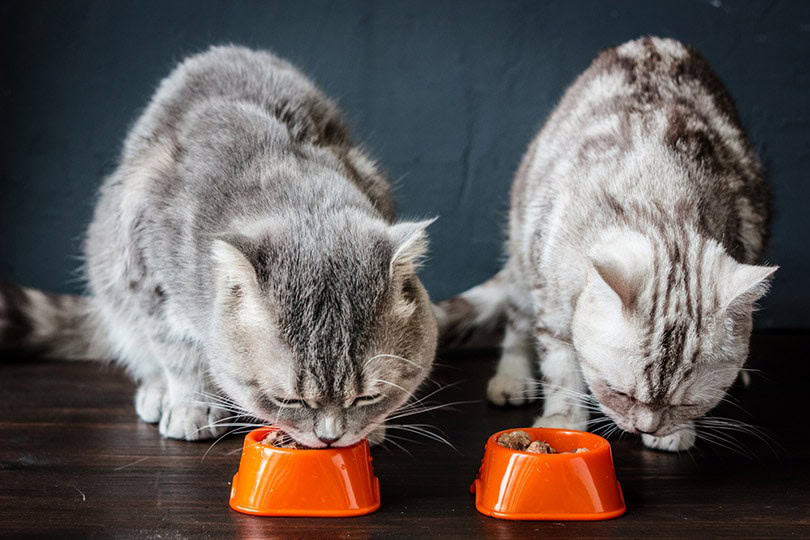
Behavioral Issues
Behavioral issues could be why your cat is eating too fast. Lack of environmental enrichment, lack of social interactions, or anxiety problems could lead to this behavior.
Suppose your cat came from a shelter—if their past is filled with competing for food, that alone can cause eating too fast.
Parasites
Certain parasites, like tapeworms, attach themselves to the intestinal wall. These parasites steal the nutrients your cat receives from their food, making them feel hungry, regardless of how much it’s eaten. As a result, your cat is on a constant quest to feel full and satisfied.
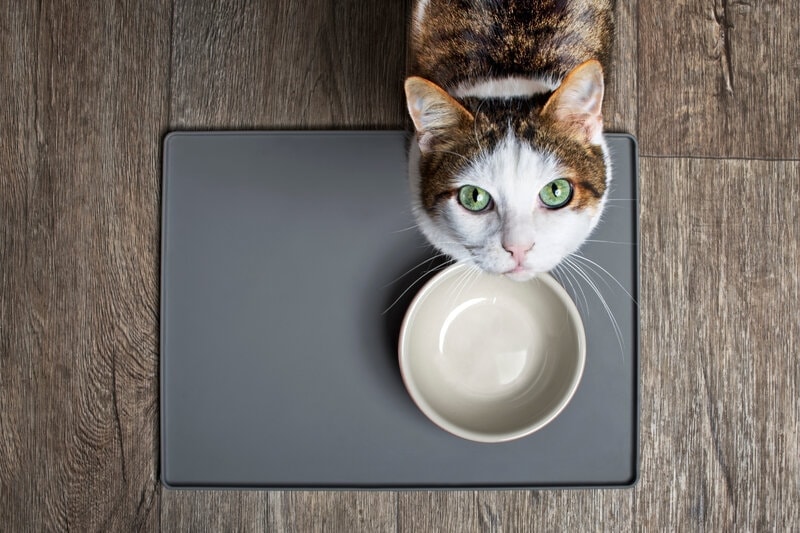
Underlying Medical Condition
An underlying medical condition, such as diabetes or hyperthyroidism, could cause your cat to eat too fast as a result of an increased appetite. If your cat is suddenly exhibiting a ravenous appetite or a change in their feeding habits accompanied by weight loss or an increase in thirst, consult a veterinarian.

Conclusion
If your cat is suddenly eating too fast and regurgitating their food, we recommend taking them in for an examination to rule out any possible medical conditions. Once your cat is cleared of a medical issue, try implementing the methods above to see if they help with the situation.
Remember to keep your cat entertained with toys to keep boredom at bay and feed them in a separate room if you have multiple cats in the home to see if that helps.
- https://www.petmd.com/cat/general-health/how-slow-down-cat-who-eating-too-fast
- https://www.alexanderanimalhospital.com/my-cat-is-eating-too-fast-how-do-i-help-them-slow-down/
- https://www.seniorcatwellness.com/how-to-stop-your-cat-from-eating-too-fast/
- https://www.petmd.com/cat/symptoms/why-my-cat-always-hungry
- https://resources.pangovet.com/redirects/?url=https://prf.hn/click/camref:1101l8LeP/pubref:petkeen/destination:https://www.chewy.com/trixie-activity-strategy-game-tunnel/dp/134682
Featured Image Credit: YunusAP, Shutterstock
